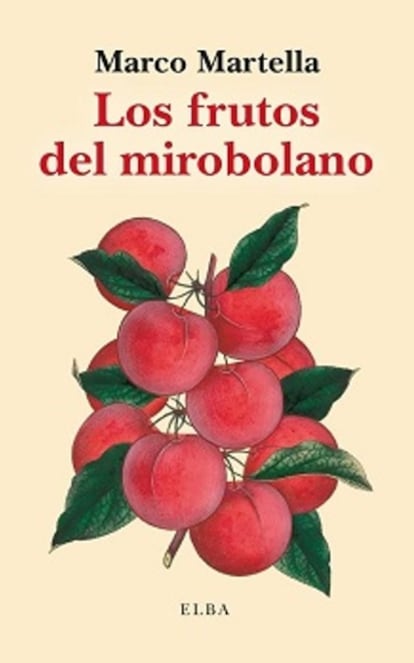Is it enough to plant trees somewhere to understand life as something simple? Marco Martella knows that the countryside has never been a pleasant place, contrary to what “City” think. To the author of A small world, a perfect world, Walks and curiosity flourish him in his unclassifiable essay genre that mixes research and imagination.
Samuel Beckett and Violet Trefusis, Pasolini and his French neighbor Suzanne, Anemones and Mirobolan plugs … their new book are distributed The Fruits of Mirobolan (EDITORIAL ELBA). “Some people, like some species, seem to grow as if the truth could only bloom among lies,” he says.
A truth could be Beckett’s monotonous life in Ussy (France), in the house that would draw a school with the perfectly cut grass and an apple tree, writing Texts for nothing And drinking cheap white wine after the afternoon. Martella says that a student who gets there asks Beckett if she was Beckett and she answers “I’m sorry, I’m just the gardener.” When he took the phone, Elias Cannetti pretended to be his secretary. What would I be if it could be?
In his new book, Martella arrives at the “Cura” gardens, hobbies for rich because, his neighbor Suzanne tells him, “the pleasure of sowing successfully is nothing more than a substitute for the true pleasures of life.” A life that disappears without having left fruit is not a real life, the lady thinks. But what is the fruit? Martella wonders. How had Suzanne managed to enhance the beauty of those plants when the sap no longer circulated in her veins?
Just as there are paths that do not get anywhere, there are seeds that expect to flourish and books that expect to be written. The strange fruits of the consolation that Rilke alludes are, for Martella, the most beautiful. That is why the anemones only appear in soils where the leaflet and dead wood form, little by little, when decomposing, a humid and deep earth.
The author of Flowers (Elba) Write that houses, such as forests, have their noises. That time is necessary to get used to them. And he talks about silence that also blooms like flowers. Thus, it evokes poor Baucis, turned into oak, already filmon, already transformed into a linden, which serves Martella to talk about the Roman myth of men descending of trees, “dejected by her nobility.”
“Those who love the gardens do not conform to life. They consider that it is good to explore death to tame it. They know that a garden is load and happiness at the same time.” In front of them, Martella defends the insignificant garden. The imperfect of Montaigne in which the French essayist wanted death to surprise him by planting cabbages. Is that? Plantar is a sacred act. An act of faith. Why keep planting? “To be honest, I have never known why I planted,” Martella himself explains. It is …, it seems to be, a peasant who has learned to take life with patience. And to accept not knowing what will happen tomorrow.

